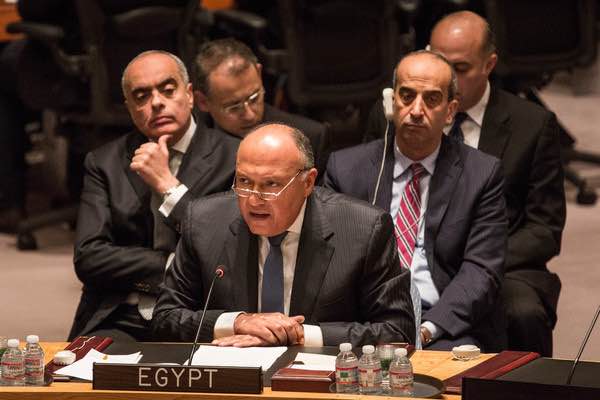The International Criminal Court’s arrest warrant for Sudanese President Omar Al-Beshir, though expected, has lit a fire under Arab and African leaders whose own despotic regimes may very well find themselves on the wrong end of the ICC stick – with no carrots in sight.
Since the court was set up in 2002, this is the first time it issues an arrest warrant for a sitting head of state.
While Al-Beshir would not face charges of genocide as requested by the ICC’s chief prosecutor, they could be added to the warrant at a later stage if more evidence emerged. For now he’s facing charges of crimes against humanity and war crimes against civilians in the Darfur region.
Naturally Al-Beshir has vowed to defy the court’s decision, rallying massive support from his countrymen who have held fervent demonstrations against ICC Prosecutor Lius Moreno Ocampo.
Egypt’s Foreign Minister Ahmed Aboul Gheit called on the UN Security Council to convene an emergency meeting with the aim of taking a decision calling for the activation of article 16 of the court’s constitution to delay the indictment.
The Arab League was “greatly disturbed by the ICC’s decision and sent a delegation to the UN to attempt to have it suspended for a year.
The backlash by Al-Beshir was instant and incisive. He revoked the operating licenses of at least six humanitarian agencies inside Sudan that have been instrumental in containing the humanitarian crisis plaguing the lives of some 2.5 displaced Darfuris.
In Egypt, opinion was divided between those who vehemently welcomed the warrant and those who were on the fence.
One human rights advocate told me that it was about time that despots in the Arab world got a taste of their own medicine and paid for the thousands of lives they’ve helped destroy.
Others evoked theories about how the whole Darfur issue was blown out of proportion. Nobody really knows what’s going on there, they say, but what they know beyond a shadow of a doubt is that Israel must be behind it to distract the world from inquests into their own war crimes in Lebanon and Gaza.
The pragmatists, while condemning the horrors to which Darfur’s population has been subjected, believe that the warrant would only serve to hijack the on-going peace negotiations between Darfur rebel leaders and the Sudanese government, stall the peace path and lead to more rape, death and destruction. They also saw the ICC’s move as politically-motivated.
One expert told Daily News Egypt that both the Sudanese government and the armed rebel forces committed violations, and so to target one of them and not the other was wrong and did not serve justice.
This is a blatant attempt to regime change under the cloak of international legitimacy, he believes.
The feeling on the Arab street is that this is yet another example of double standards. Would the ICC even consider issuing an arrest warrant against George W. Bush for war crimes he committed in Iraq where over half a million people died since the US invasion in 2003? What about Israeli crimes in Palestine?
How the ICC plans to execute the arrest is also cause for confusion. The ICC does not recognize the political immunity of heads of state, but because the court has no executive mandate, it can only urge all countries, not just the 108 that are members of the court, to cooperate by arresting him once he sets foot it them.
It is highly unlikely that any Arab or African countries will cooperate, since they have all expressed support for him.
As much as I agree with the principle that no head of state should be left unpunished for crimes that he has actively supported, I do not believe that the case in Darfur is about ethnic cleansing as it is touted to be, where Arabs are allegedly killing non-Arabs.
Experts on Sudanese affairs have repeatedly said that Darfuri tribes have been intermingling for centuries and that such dichotomies are largely false.
It reminds me of the Sunni-Shia divisions which began sprouting in Iraq after the invasion, at a time when many Iraqis claimed that they had always co-existed peacefully. Inter-sectarian marriages were also said to be commonplace.
Al-Beshir must be held accountable for the crisis in Darfur, but how far will this warrant help the millions who have been living in dire conditions for years? Even though the warrant could speed up the process of reaching a political solution, it all boils down to balancing the respect for national sovereignty with the international community’s responsibility to protect the victims of crimes against humanity.
Rania Al Malkyis the Chief Editor of Daily News Egypt.


